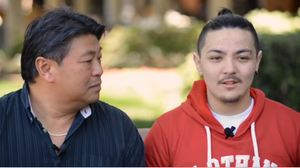Organ Sources
Your hepatologist at the transplant center will discuss the sources of livers that are available.
DBD Organs (Donation after Brain Death): Most liver transplants are DBD livers from deceased donors who have had devastating, severe brain damage with irreversible loss of brain function, and meet the criteria for brain death. The donor has been on life support, including a ventilator/respirator that breathes for the patient.
ECD Organs (Extended Criteria Donor): In an effort to increase the number of liver transplants, ECD livers come from a deceased donor who may be older or may have other risk factors such as a history of exposure to Hepatitis C, an abnormal amount of fat in the liver cells, or other reasons. This article discussing extended criteria in liver transplantation noted there are no absolute criteria for an ECD liver. Donor quality can be described as a continuum from low risk to somewhat higher risk.
You may want to consider discussing ECD organ donation early on with your physician, so that you have time to ask questions and consider your personal situation ahead of time.
DCD Organs (Donation After Cardiac Death): Another term you may hear is DCD liver, where the donor liver is from a non-heart-beating donor, who has had a devastating, severe brain injury, but does not meet the formal criteria for brain death. Because the donor may be near death and the brain injury cannot be fixed or cured, the family, in discussion with the medical team, may decide to stop life-prolonging support and allow a natural death. After the patient's heart stops beating and death is declared, the organs are removed in the operating room by a different team of doctors. Your doctor can explain this process to you and what the transplant program's DCD donor and organ criteria include.
Directed Donations: Directed donations occur when donor families ask that a certain organ be directed to a family member, close relative, or friend who needs an organ, and is listed for transplant. Your medical team can assist you in discussing this topic.
It's Your Decision: As discussed, you may want to discuss these situations with your doctor in advance, so that you have time to ask questions and consider your options. You need to make a decision that is right for you, weighing your condition, the length of your wait, and the particular characteristics of the donated liver. Refusal of a specific liver should not jeopardize your position on the waiting list. Discuss these issues with your team.
Living Donations

Another source of donated livers is from a living donor in whom a portion of a liver is given to you from a living person, usually a relative or a friend. The donor’s remaining liver and your portion regenerate quickly.
LDLT Organ: Living Donor Liver Transplantation (LDLT) is done in a limited number of transplant centers. If you decide to have a living donation, you may want to find out more about the transplant center. Experts in the field recommend that a center should have performed a certain number of surgeries of this type (15-20 living donations) to achieve proficiency. The center should maintain its expertise by continuing to do living donor transplants once it achieves that level of competence. Outcomes for the donor and the recipient improve if a transplant center has reached a sufficient volume of surgeries. Ask about the history of the center’s experience with this surgery.
Matching Criteria: There are donor-recipient matching criteria, and the process can become complicated. The donor needs to be evaluated as thoroughly as you by a different medical team at the center. Discuss with your hepatologist whether living donation is an option for you. The advantages are that you know the complete medical history of the donor, and, often you can choose the time of the surgery, assuming your MELD score is above a certain level, usually at 14 or 15. Donating to someone with a very low MELD may be problematic for the recipient, according to recent research.
No Compensation: The national organization regulating organ allocation, UNOS, does not permit payment or compensation for organs from a living person. It is unethical and illegal. Reputable transplant centers will not take part in this type of transplant situation. Our national system relies solely on voluntary organ donations.
Out-of-Country: Similarly, transplant centers do not recommend going overseas for this surgery, because there may be different standards for transplant. This is an important topic to discuss with your doctor(s) and transplant team.
Complete your profile and join PSC Partners Seeking a Cure in advancing PSC research towards a cure. Find information about clinical trials.




